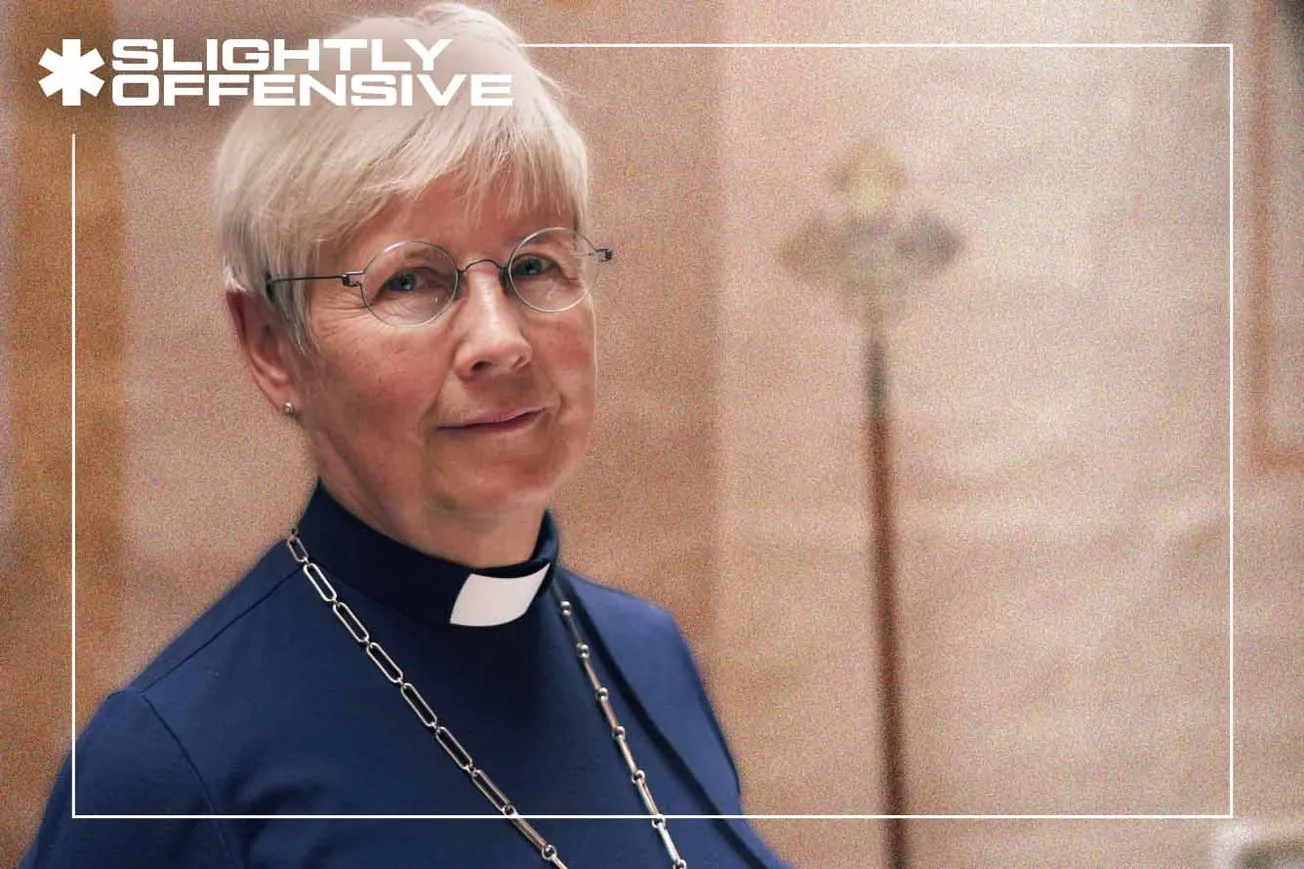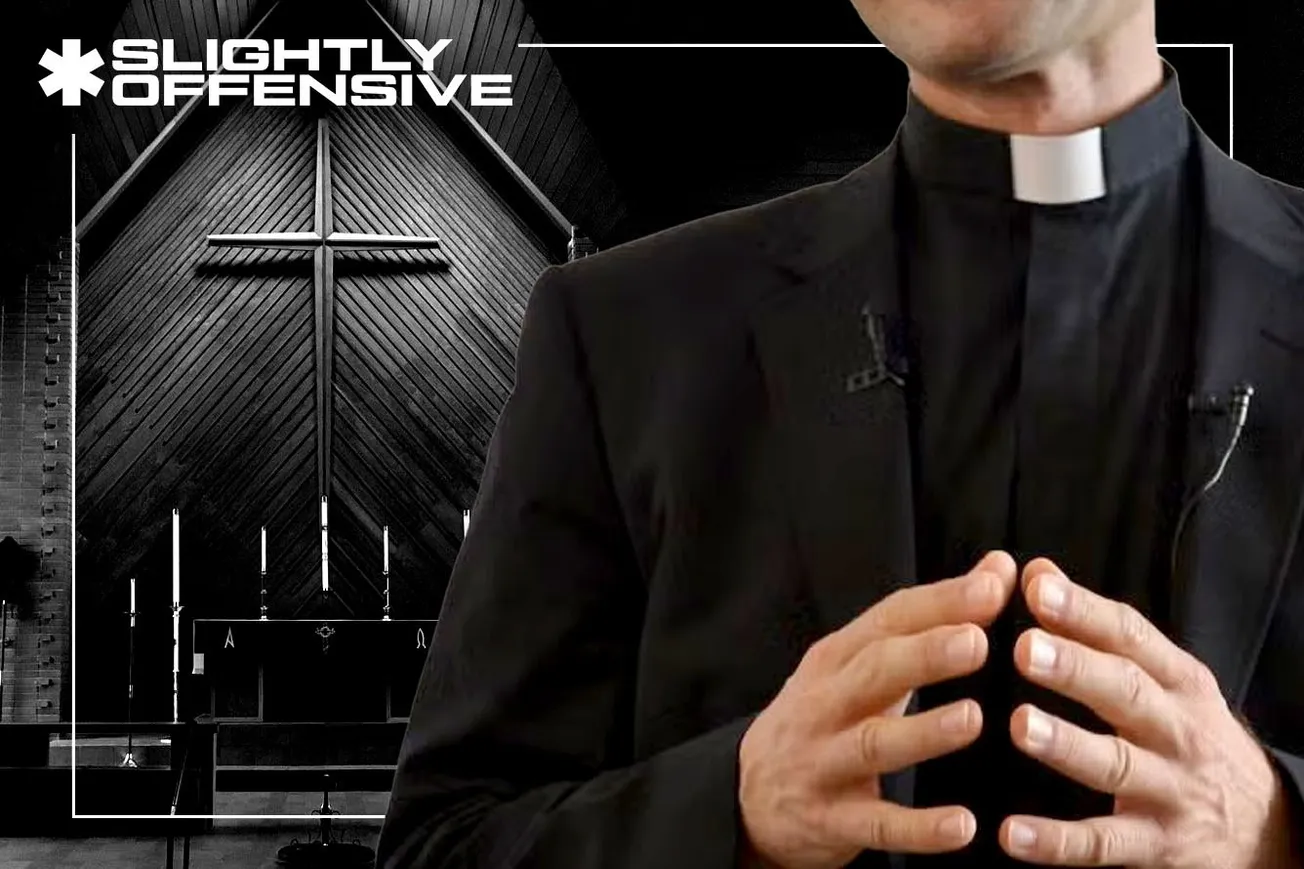Table of Contents
Last week President Donald Trump announced that Pastor Paula White-Cain would serve as the Senior Advisor to the newly created White House Faith Office.
The decision to appoint a female pastor to a top position in the White House has caused a rift among Christian conservatives. Some are frustrated that a controversial female pastor was honored with such a prestigious role, while others are rejoicing at the fact that a MAGA pastor was rewarded for their loyalty.
Personally, I don't agree with the appointment of Paula White-Cain. I think many aspects of her teachings are inverted — that is to say, they are the opposite of what is true. Likewise, I don't believe in women pastors. If you disagree, that's fine.
Regardless, I thought it would be interesting to explore how Christians on the other side—those that support women pastors—justify their beliefs. It is no longer enough to simply call people "demonic" or "false prophets," this ideology has become firmly entrenched in mainstream Protestant Christianity, and will only continue to grow into an increasingly complex issue until firm and radical action takes place.
So let's dive into what progressive Christians (this is what we'll call them) believe and how they justify behaviors that traditional Christians simply dismiss as "demonic" or "heretical."
1. Paul was ONLY talking about the Church in Ephesus
Let's start with the most common rebuttal for women pastors. 1 Timothy 2:12 is the verse you'll hear cited when the topic comes up.
Paul in his letter to Timothy forbids women from teaching and having authority over men. Seems pretty clear-cut, right? Well, progressives don't think it's so simple.
Some progressive pastors and theologians argue that Paul, in his letter to Ephesus, was not talking about all churches (in the universal sense) but specifically the church of Ephesus, which had problems with women dressing immodestly and disrupting the power dynamics of the church.
Because these women were being unruly with their new-found freedom, Paul had to put them back in their place with a strict set of rules. But these rules are specific to Ephesus and do not necessarily apply to modern churches.
Progressives also argue that the word "teach" in the verse above is translated from a Greek word that is similar to authority — so the argument is that Paul's issue was with authority specifically, NOT the teaching or leadership aspect.
Theologians argue that teaching and leadership, in modern society, does not = authority.
2. Silence and submission was cultural
Paul says that a woman "should learn in quietness and full submission."
Women pastors are anything but quiet and submissive, so how is this justified? Well, progressive theologians would say that Paul, in this passage, is making a cultural statement that made sense in 60 AD but doesn't make sense in society today.
At the time of writing, women did not have the same rights as men and were not seen as equals. Silence was seen as a form of submission and acknowledgement of authority. For them to teach in that setting was also seen as claiming authority.
But in the modern context, we don't perceive someone teaching or speaking as claiming authority — therefore it should be permitted (so long as they don't claim authority). And today, we see submission differently, not through silence but through acknowledgement and deeds — so women don't need to be silent during worship, as Paul states in Timothy.
Basically, the entire argument hinges on what "assuming authority" means. According to supporters of this belief, as long as the woman pastor is submitting to a higher authority like a senior pastor or the scriptures, they are still technically submitting to a man — this way they can circumvent the command from Paul.
But then there are exceptions, like Mariann Budde, the Bishop who addressed Trump in Washington, DC. She is the head of the Episcopal Diocese of Washington – the highest rank in the Church... there is no man above her. I guess the Episcopal Church would say that everything Paul said was cultural and only applied to people of that time? Maybe Paul was sexist? Who knows?
3. Women have ALWAYS been teaching in the bible
James Emery White, a Southern-Baptist senior pastor and professor of Theology at Mecklenburg Community Church, makes the argument that women have always been teaching in the Bible.
This is (in his opinion) further evidence to suggest that Paul's statements were specific to the Church of Ephesus – and proves that Paul wasn't against all women teaching or leading, just the Ephesian women.
James Emery White cites examples of women teaching in the bible to back this claim (e.g., Deuteronomy 6:7; Proverbs 1:8; Acts 18:26; II Timothy 1:5; 3:14ff; Titus 2:3-5).
Deuteronomy 6:7 – Women teaching children. Proverbs 1:8 – Sons should listen to the instruction of their father and mother. Acts 18:26 – Priscilla and Aquila explain to Apollos the way of God more adequately. II Timothy 1:5 – Paul references two women who had "Sincere faith." II Timothy 3:14 – Paul tells Timothy to continue learning. Titus 2:3-5 – Paul says women should be busy at home and "subject to their husbands."
You can look up these verses yourself, they don't lend to the argument of women teaching men at all. The examples are about women teaching other women or teaching children – something no one is disputing.
The only example that does make sense is Priscilla and Aquila explaining Jesus' teachings to Apollos. But this was not in a church setting, it was in the home of a married couple, and Apollos was not part of the church, he was a rouge preacher from Egypt.
4. The leadership of Phoebe and Priscilla
Another reason cited when supporting female leadership in the Church is Paul's reference to Phoebe and Priscilla, in the book of Romans.
Here's what Emery White says regarding this verse, "Paul did not want to say that women couldn’t lead in the church’s services, because he recognized the leadership of women such as Phoebe and Priscilla in places such as Romans 16."
Paul praises these women; therefore he is okay with female leadership because they were leaders in the early church.
The word "servant" has been linked to the word "deacon" which could imply Phoebe held some leadership position. Emery White extends this leadership into all ministry and Church functions, such as being a pastor.
Other theologians suggest that Phoebe's role was likely in the ministry of women and may have extended to the care of orphans, widows and the sick. Again, Paul did not forbid women to teach children or lead other women.
5. Christianity freed women from sexist ideas
Another argument often used to justify women pastors comes from the feminist wing of Protestant Christianity. The view is that Christianity freed women from being treated like second-class citizens and gave them equal rights to men in Church and society.
The biblical feminist says, “I seek the freedom to follow Christ as he calls me to use my gifts in God’s service.”
Essentially, it's about spiritual equality – which extends to all aspects of the Church. Biblical feminists interpret Galatians 3:28 (“there is neither male nor female, for we are all one in Christ Jesus”) to mean that women and men are completely equal in all things spiritual. One sex should not have dominion over the other, it should be an equal partnership.
People that subscribe to this ideology would argue that society during the time of the Bible was sexist. And some of that 'cultural sexism' seeped into the New Testament. Sexism is bad, therefore anything in the Bible that sounds cultural can be discarded – including 1 Timothy 2:11-12.
It's a more sophisticated way to cherry-pick Bible teachings.
6. Jesus respected women and broke gender norms
This argument makes zero sense to me, but I'll do my best to explain it.
After Jesus resurrected, he appeared to numerous people, but the first person was Mary Magdalene. For feminist "Christians", this is significant because she was obviously a woman and the first to bear witness – being one of Jesus' most devoted disciples.
Mary was also the first to announce that Jesus had been raised from the dead. Jesus sent her to tell the men. In Jewish culture, women’s testimony was not highly valued, yet Jesus took no issue with this.
I don't fully understand how this relates to leadership and authority in the church. Maybe it's the fact that in this instance, a woman was a messenger of Christ? Perhaps since Jesus didn't follow the cultural norms of the time, he would be against patriarchal hierarchies in every sense?
Mary, the mother of Jesus, and Mary Magdalene were those who witnessed Jesus' death (John 19:25-27). It makes sense that Jesus visited them first after he rose, since they were his most loyal and devoted followers, before meeting with those disciples who had abandoned him.
There is also a Parallel between Mary Magdalene and Eve. Satan appeared to Eve in the garden, which began the cycle of sin and death, and Jesus appeared to Mary after his resurrection, after he conquered death.
7. Deborah the Prophet was a leader
Deborah was a prophet mentioned in the Book of Judges who was sent by God to command Barak to lead an army against the Canaanites. Barak was afraid, and begged Deborah to go with him to raise an army (Judges 4:8).
Deborah agrees but tells Barak, “because of the course you are taking, the honor will not be yours, for the Lord will deliver Sisera into the hands of a woman.”
Barak defeats the enemy army, but ultimately, the commander of the Canaanites is killed by a woman.
Deborah is seen as this feminist icon because she rose and took command of Barak when he was afraid. Being a prophet, she was also a messenger of God. This story is used as an example of female spiritual leadership.
But this story is recorded because it's an example of what not to do. God used the women in the story because the men were cowards and lacked faith. The fact that a woman received the glory was an embarrassment. In the Bible, women having authority over men was described as a terrible thing – a lesson against men, and not something to adopt as a practice.
It was a curse to be ruled by women. Here in Isaiah, God talks about all the terrible things he is going to do to the Israelites, who have once again fallen away.
When he says, "women rule over them" this is one of the many ways the Israelites are oppressed (not a good thing). Just because God allowed the rare woman to take authority, does not mean that is the intended order.
8. A woman pastor is not the ultimate spiritual authority
I mentioned this argument earlier, but I think it deserves its own explanation.
Less extreme Biblical feminists don't completely throw out the spiritual hierarchy, which the Apostle Paul mentions in Timothy. They interpret authority as the absolute spiritual authority in a church, so it's okay to have female pastors in a Church as long as the head pastor is a man.
They don't see leadership or teaching as "assuming authority." Again, they would use the cultural argument to get around the command of silence and forbidden teaching.
I guess this type of protestant Christian would disagree with Bishop Mariann Budde since she is the head of her church and not under a man. But even so, they basically have the same ideology, just to different extremes. The hierarchy would quickly be discarded if the female pastor were to gain enough popularity or support.
9. Female pastors were called by God
If God called a woman to lead and teach in the Church, then who's to say otherwise?
It's impossible to argue when someone says they were called by God to do a certain thing. How could you know otherwise? That's between them and the entity that they are communicating with.
Most Christians believe that if someone is being called by God to behave in a way that contradicts the Bible, then it's probably not God they are talking to. But this is a common argument that is used by women who enter ministry. They believe that they are the exception to the rule, they are equal to figures like Deborah or Phoebe.
In this verse, Paul reminds Timothy that Eve was the one who wanted to be equal to God, she was the one who was deceived. Women are only saved through childbirth. How do biblical feminists explain this one?
Don't you find it strange that the vast majority of these woke churches are run by women? It's almost like they are prone to accepting falsehoods.
Even after hearing all those great arguments, I'm still not convinced. The logic doesn't hold up, and I don't care for the legalistic interpretation. It is something invented by Rabbis and serves only to find loopholes and cause confusion where none exists.
Please leave your opinions / comments on these stories below, we appreciate your perspective!









